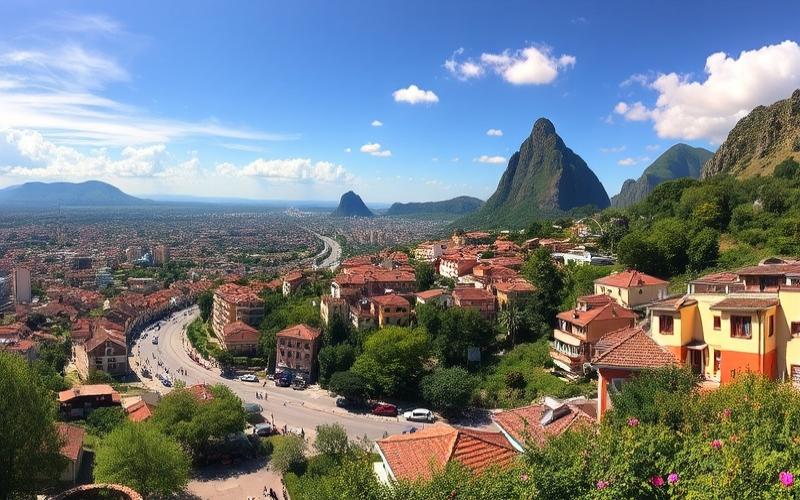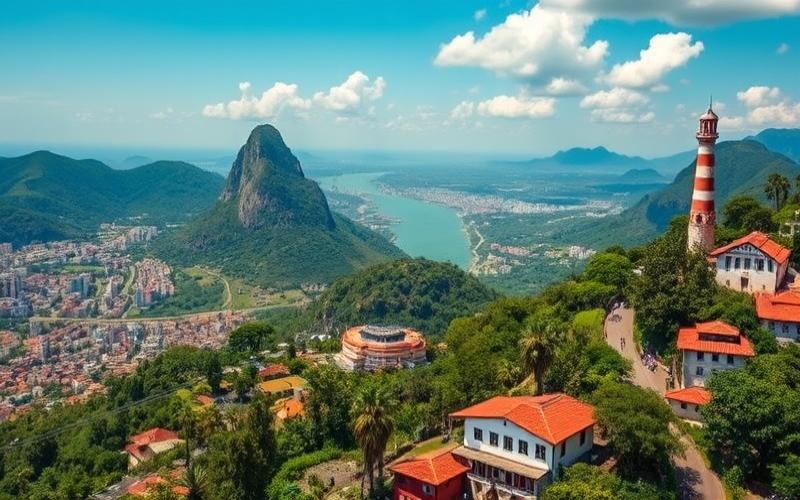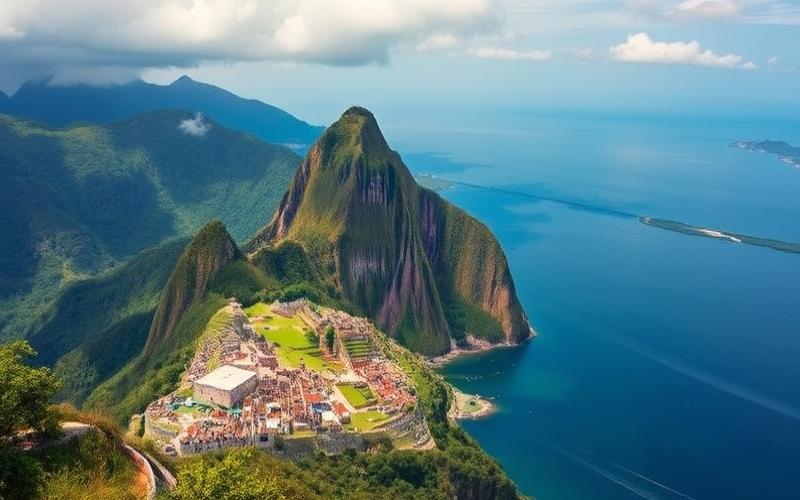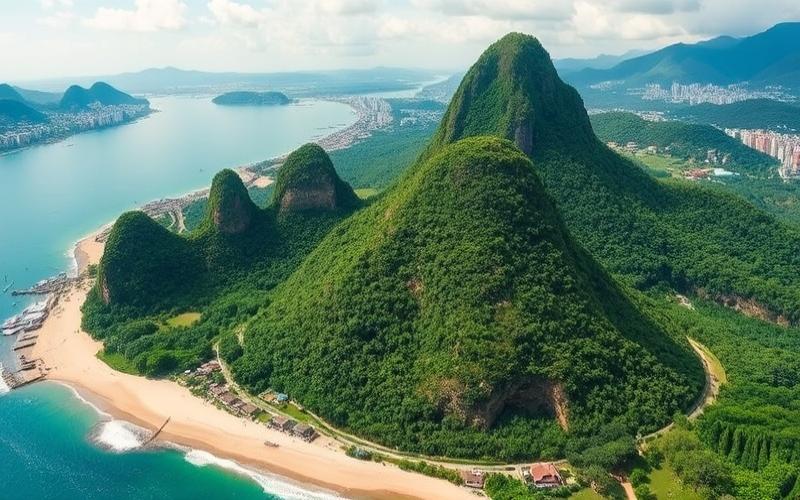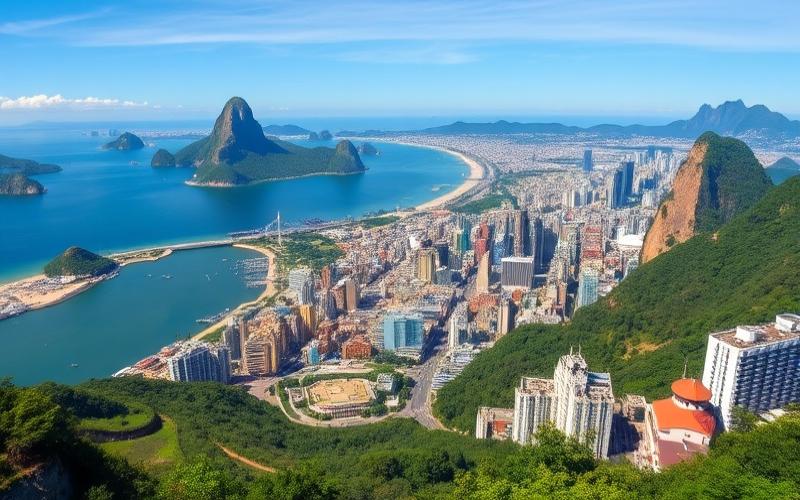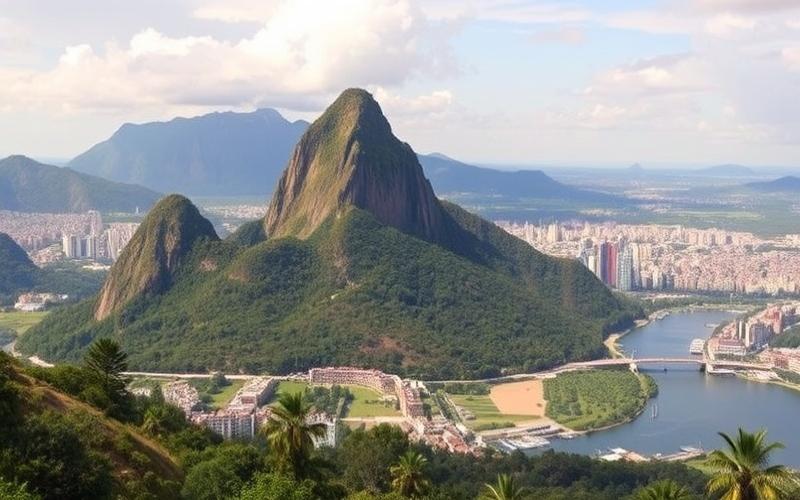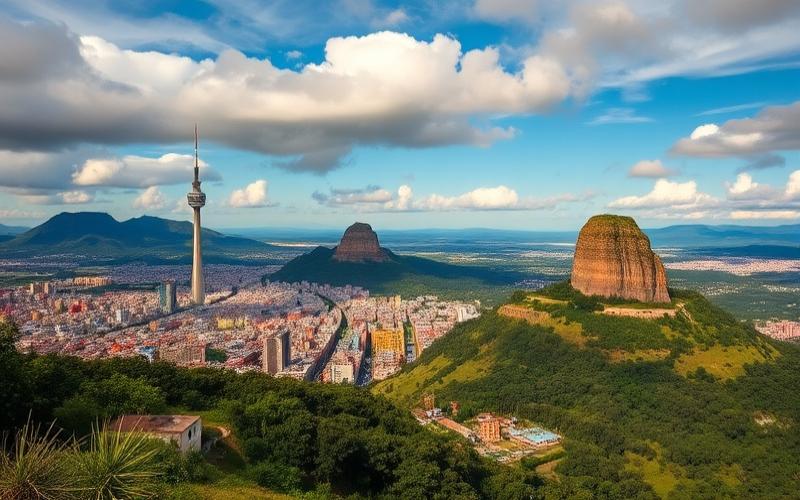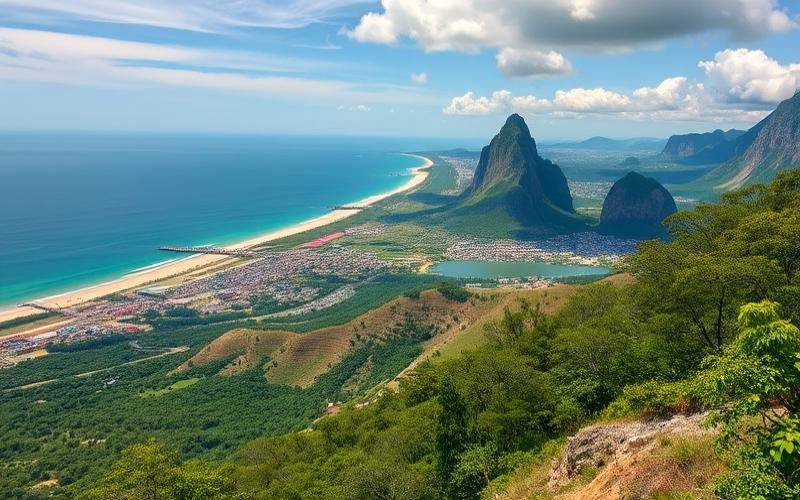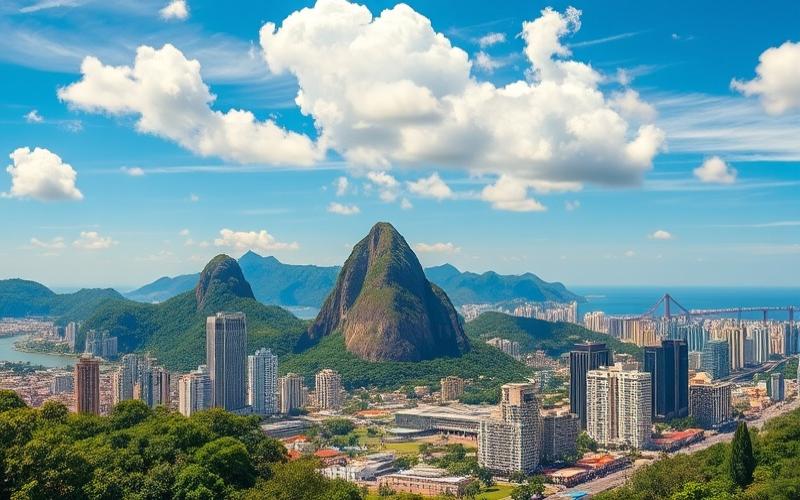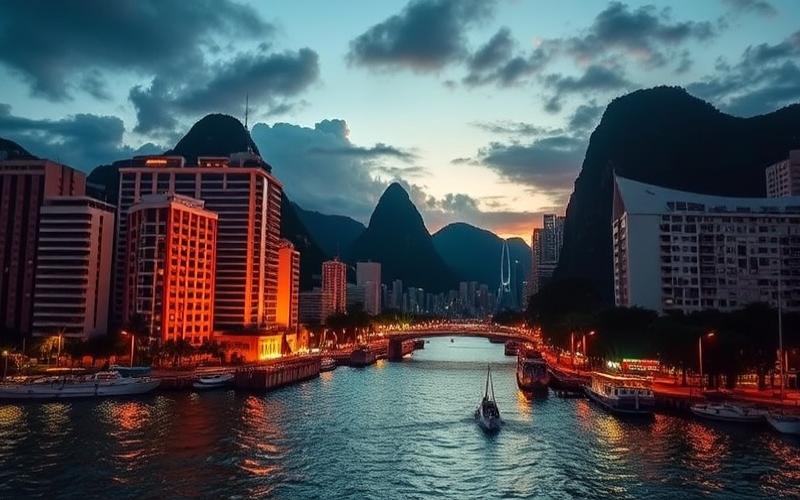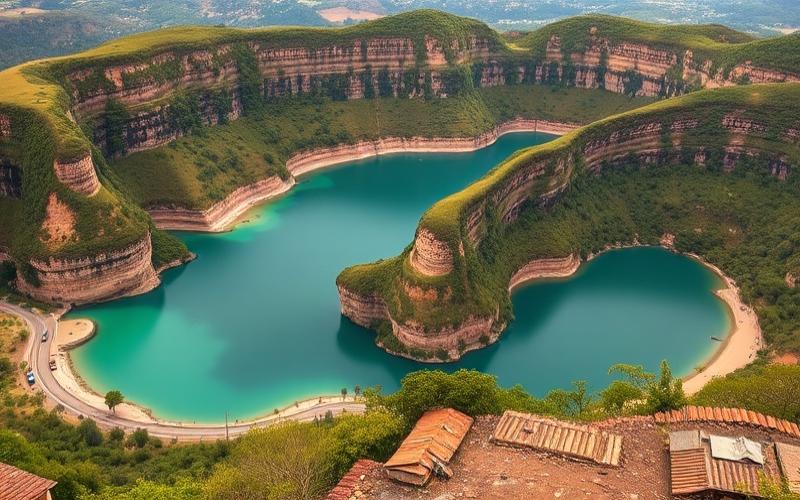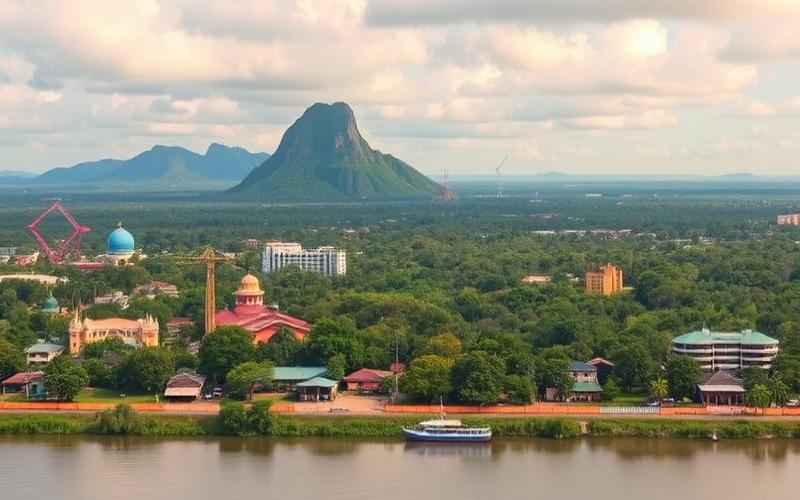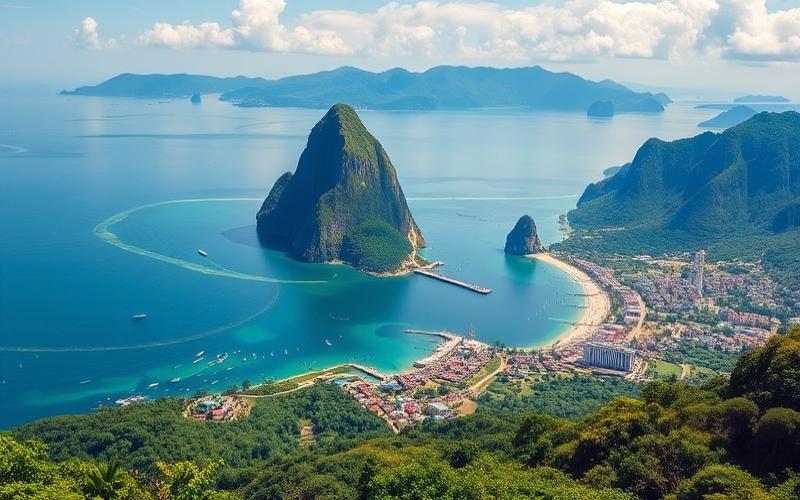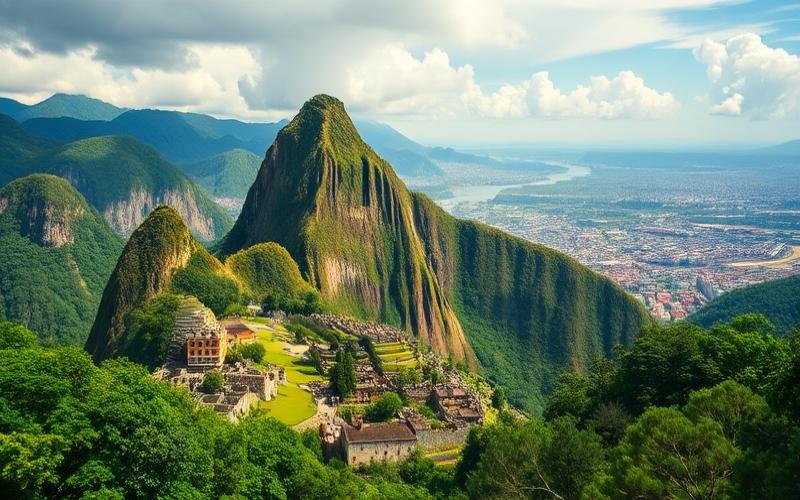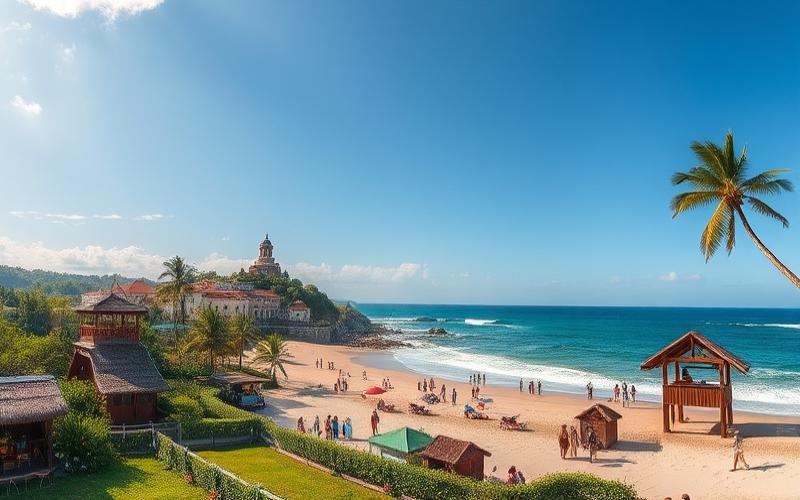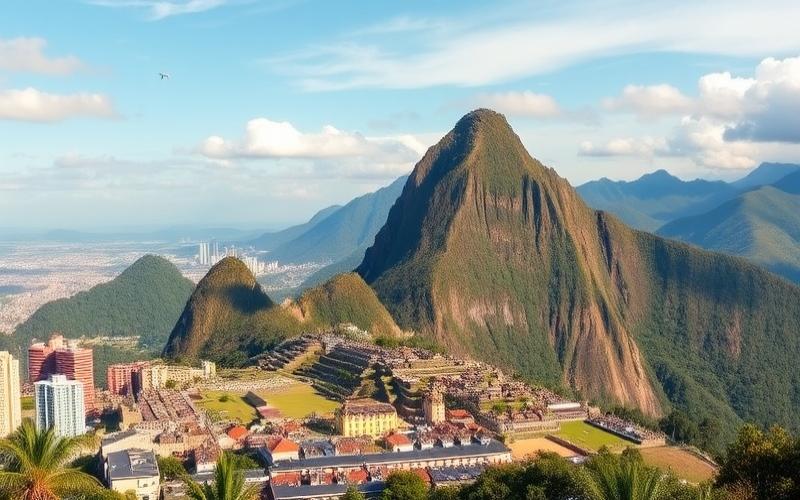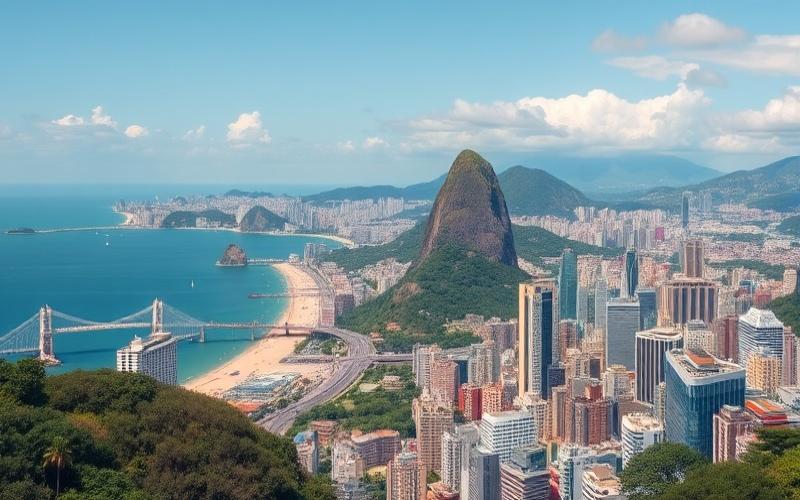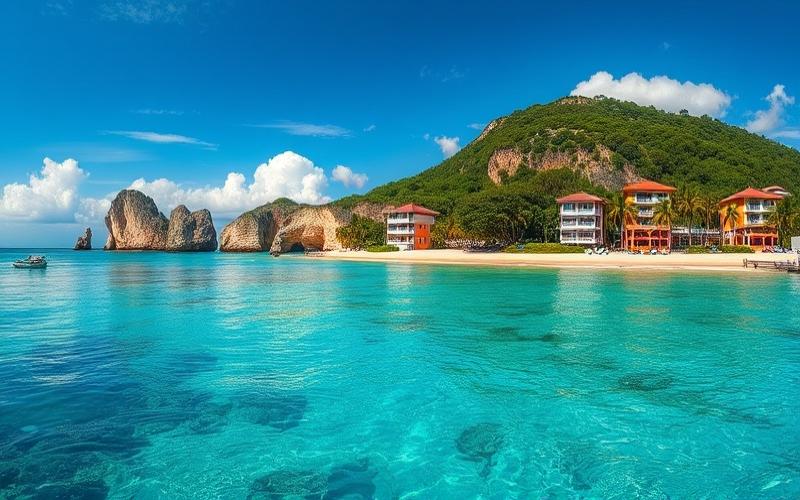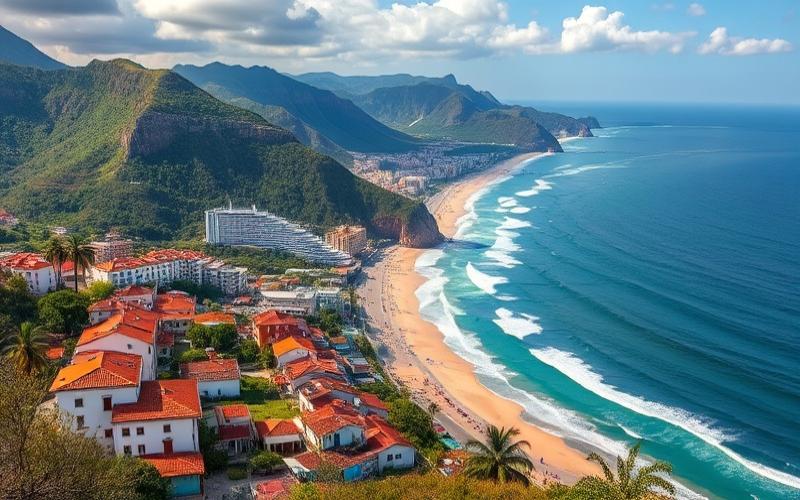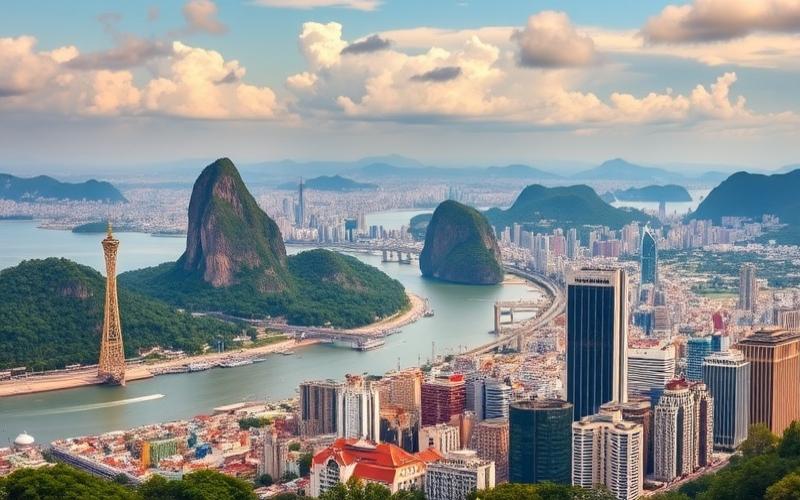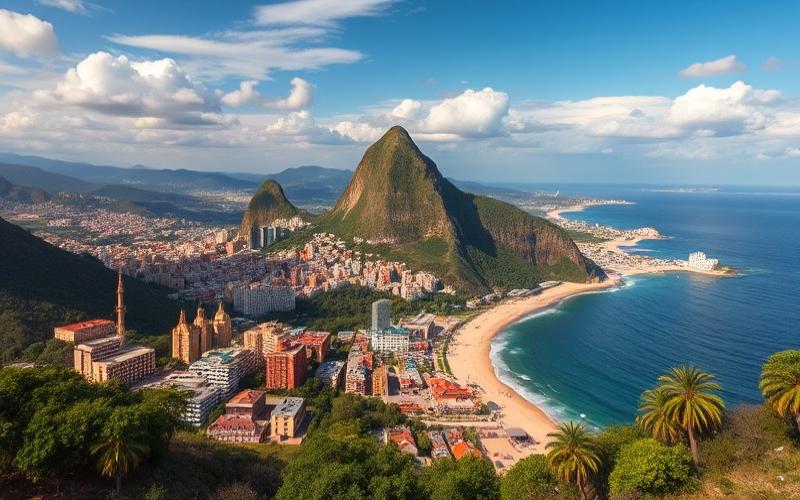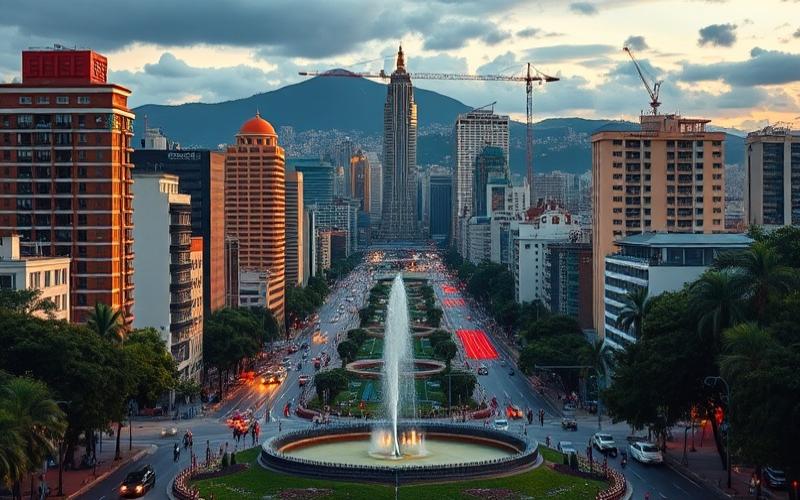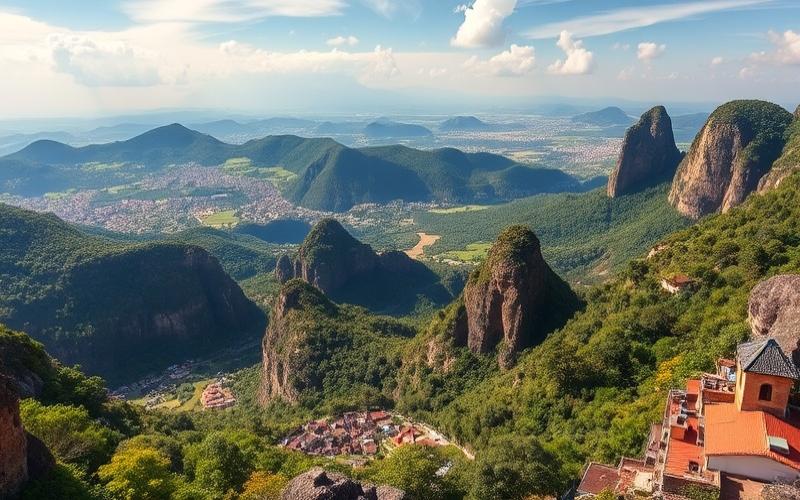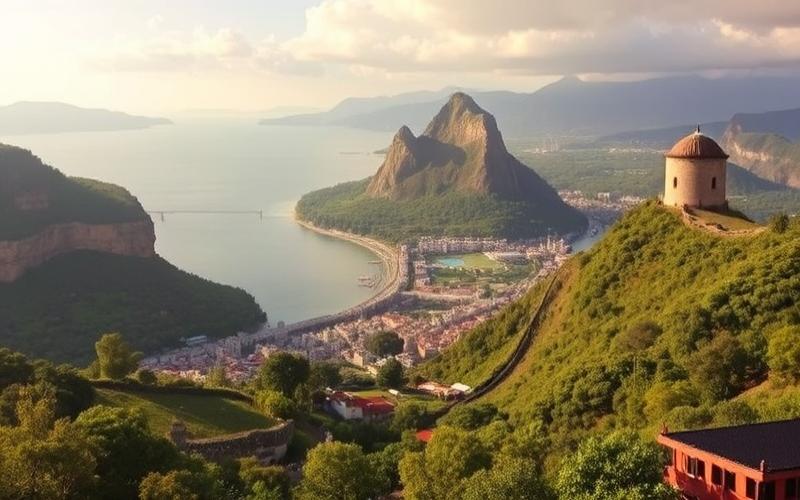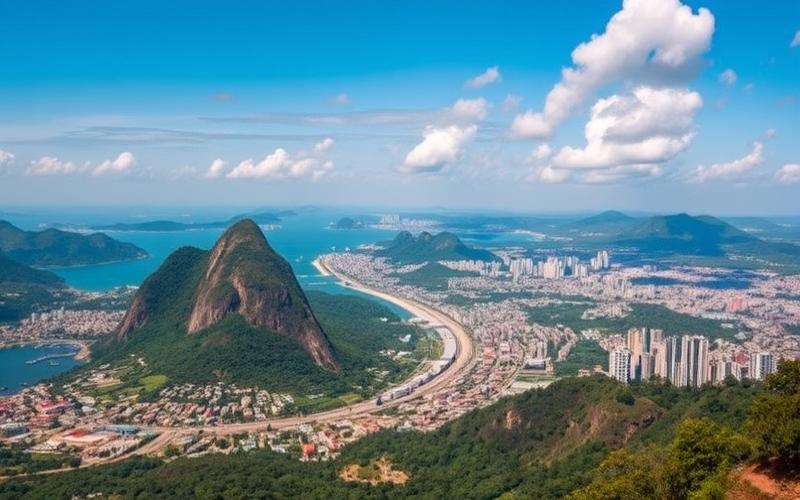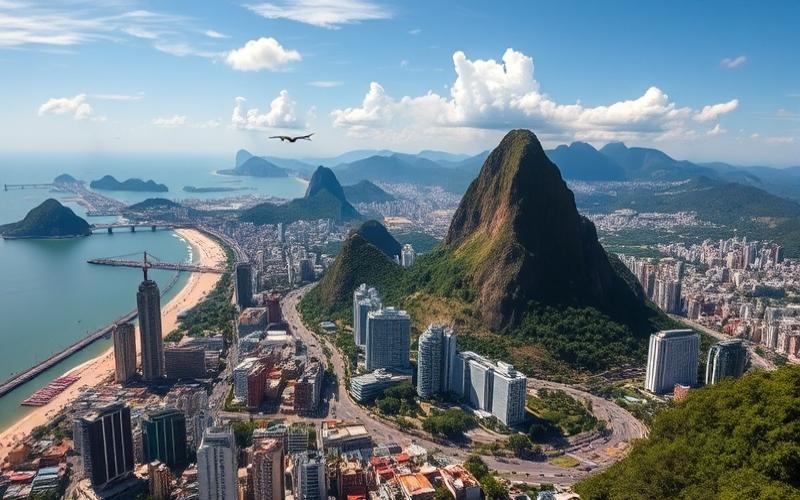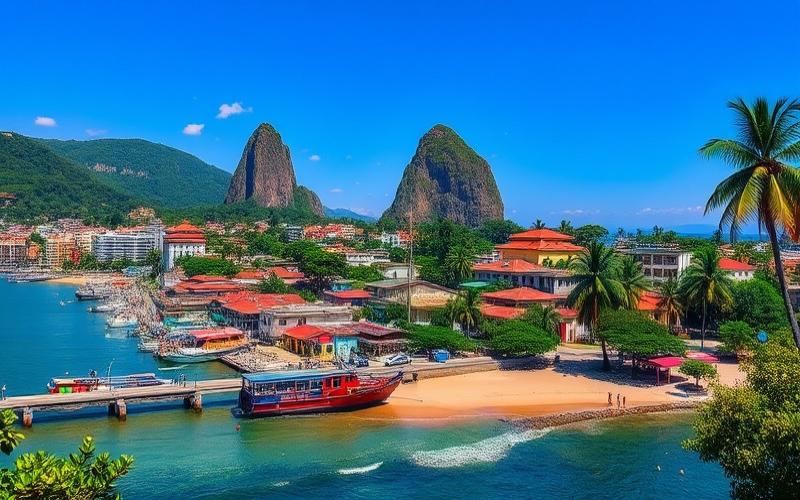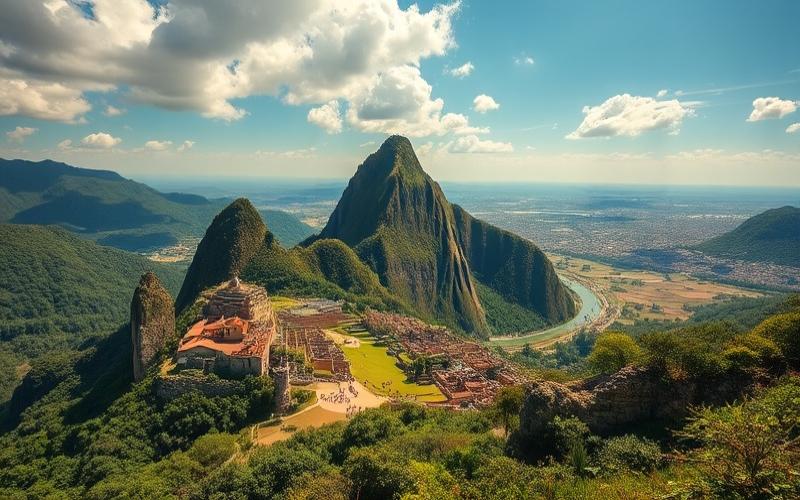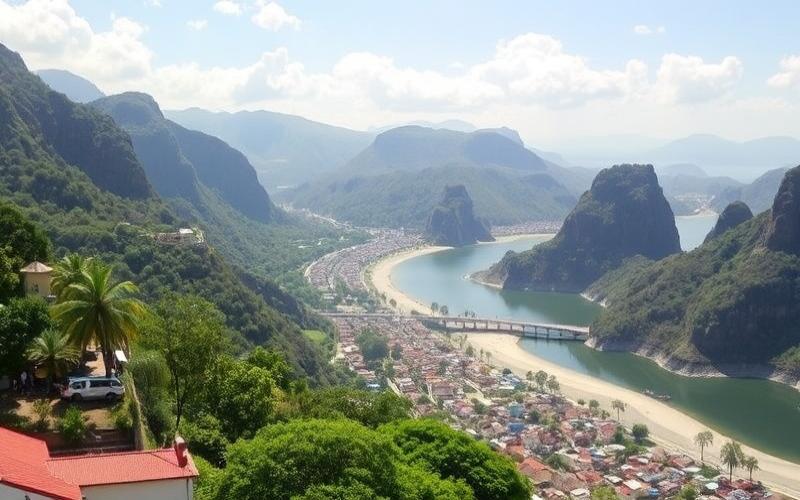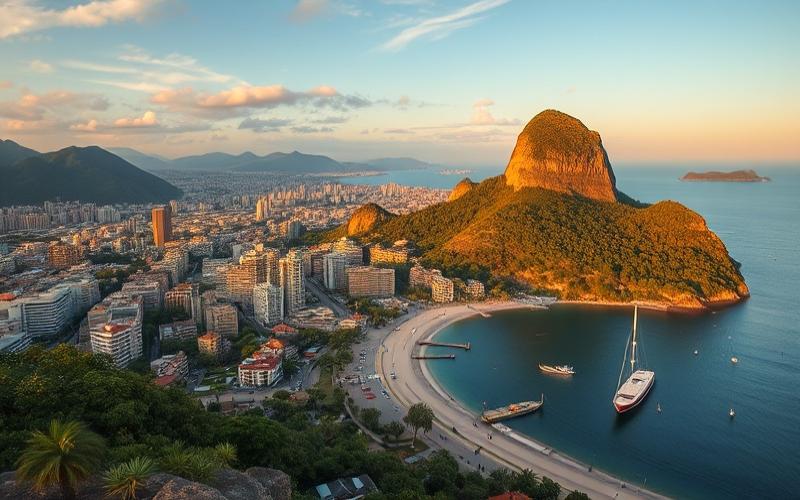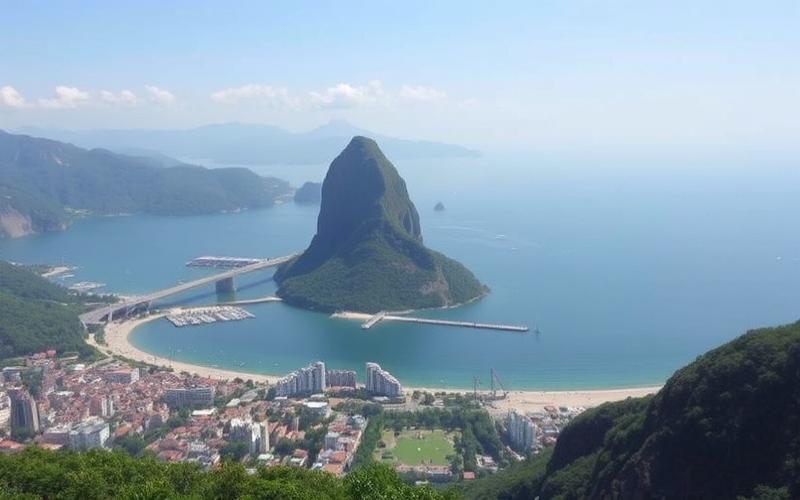
 Published on and written by Cyril Jarnias
Published on and written by Cyril Jarnias
Brazil, the largest country in Latin America, offers a dynamic and constantly evolving real estate market. Despite recent economic challenges, the Brazilian real estate sector presents interesting opportunities for savvy investors. Let’s take a closer look at the current trends shaping this transforming market.
Sectors Driving the Brazilian Real Estate Market
The Brazilian real estate market is currently experiencing renewed interest in several key sectors, reflecting the country’s social and economic changes:
1. Affordable Residential Real Estate
Facing a housing deficit estimated at over 6 million units, the affordable housing sector is booming in Brazil. The government program “Casa Verde e Amarela” (formerly “Minha Casa, Minha Vida”) stimulates the construction of housing for low and middle-income households. This segment is attracting more and more investors due to strong demand and government support.
2. Next-Generation Offices
In major metropolises like São Paulo and Rio de Janeiro, demand for modern and flexible office spaces is on the rise. Class A office buildings, offering advanced technologies and collaborative spaces, are particularly sought after by international companies and growing startups.
3. Logistics and Industrial Real Estate
The rise of e-commerce in Brazil has led to strong demand for modern warehouses and distribution centers. Regions near major urban centers and major transportation routes are particularly prized for this type of investment.
4. Luxury Tourism and Hospitality
Despite challenges posed by the pandemic, the Brazilian tourism sector is showing signs of recovery. Investments in luxury hospitality, particularly in popular beach destinations like Rio de Janeiro, Florianópolis, and the Northeast, are attracting the attention of international investors.
Good to Know:
The Brazilian real estate market offers a diversity of opportunities, ranging from affordable housing to luxury properties, including commercial and industrial real estate. The key to success lies in a thorough understanding of local dynamics and emerging trends.
Price Barometer: Between Stability and Growth
The evolution of real estate prices in Brazil presents a contrasting picture, varying by region and market segment:
Stabilization in Major Metropolises
After a period of correction following the real estate boom of the 2010s, prices in major cities like São Paulo and Rio de Janeiro have stabilized. In some sought-after neighborhoods, there’s even a slight price increase, particularly for quality properties.
Moderate Growth in Secondary Cities
Medium-sized cities, benefiting from attractive quality of life and more affordable cost of living, are experiencing moderate but steady growth in real estate prices. Cities like Florianópolis, Curitiba, or Belo Horizonte are attracting more and more investors and residents.
Strong Appreciation in Tourist Areas
Coastal regions and popular tourist destinations have seen significant price appreciation, driven by growing demand for second homes and rental investments. Locations like Búzios, Trancoso, or Fernando de Noronha have seen their prices climb significantly in recent years.
Opportunities in the Affordable Segment
The affordable housing segment, supported by government programs, is experiencing stable price growth. This trend is expected to continue given the persistent housing deficit in the country.
Good to Know:
Although real estate prices in Brazil have experienced some volatility in recent years, the current trend is stabilization in major cities and moderate growth in attractive regions. Investors must remain attentive to regional disparities and specific opportunities in each market segment.
Brazilian Real Estate Gems: Where to Invest?
For investors seeking opportunities in the Brazilian real estate market, certain types of properties stand out for their yield and appreciation potential:
1. Apartments in Developing Neighborhoods of Major Cities
In metropolises like São Paulo or Rio de Janeiro, neighborhoods undergoing transformation offer excellent opportunities. Areas like Vila Madalena in São Paulo or Botafogo in Rio are experiencing rapid gentrification and attracting a young, dynamic population. Small apartments or studios in these neighborhoods present good rental potential and medium-term appreciation.
2. Vacation Homes in Emerging Beach Destinations
The Brazilian coastline is full of lesser-known but booming destinations. Regions like southern Bahia (Trancoso, Itacaré) or the northern coast of São Paulo (Ilhabela, Ubatuba) offer investment opportunities in high-end vacation properties, with attractive seasonal rental potential.
3. Flexible Office Buildings in Secondary Business Hubs
Medium-sized cities experiencing economic growth, like Campinas, Joinville, or Porto Alegre, are seeing increasing demand for modern and flexible office spaces. Investment in adaptable office buildings, capable of hosting coworking spaces or satellite offices for large companies, can prove wise.
4. Affordable Housing Projects in Urban Peripheries
With government support and strong demand, affordable housing projects in suburban areas of large cities offer interesting opportunities. These investments often benefit from preferential financing and sustained demand.
5. Agricultural and Ecotourism Properties
Brazil, with its exceptional biodiversity, is seeing growing interest in ecotourism and agritourism. Investment in rural properties, which can be converted into eco-lodges or agritourism farms, particularly in regions like the Pantanal or the Amazon, can offer interesting returns while contributing to sustainable development.
Good to Know:
Diversification is key in the Brazilian real estate market. By combining investments in different types of properties and regions, investors can optimize their returns while minimizing risks. Thorough due diligence and understanding of local regulations are essential before any investment.
Conclusion: A Promising Market Despite Challenges
The Brazilian real estate market, despite its complexity and challenges, offers real opportunities for savvy investors. The diversity of segments, price stabilization in some regions, and growth potential in others create an environment conducive to strategic investments.
However, it is crucial to understand local dynamics, constantly evolving regulations, and inherent risks for each type of investment. A cautious approach, combined with solid local expertise, can enable investors to leverage the positive trends in the Brazilian real estate market.
Whether in affordable housing, luxury real estate, modern offices, or tourist properties, Brazil continues to offer fertile ground for real estate investors seeking attractive returns and geographic diversification.
Disclaimer: The information provided on this website is for informational purposes only and does not constitute financial, legal, or professional advice. We encourage you to consult qualified experts before making any investment, real estate, or expatriation decisions. Although we strive to maintain up-to-date and accurate information, we do not guarantee the completeness, accuracy, or timeliness of the proposed content. As investment and expatriation involve risks, we disclaim any liability for potential losses or damages arising from the use of this site. Your use of this site confirms your acceptance of these terms and your understanding of the associated risks.


